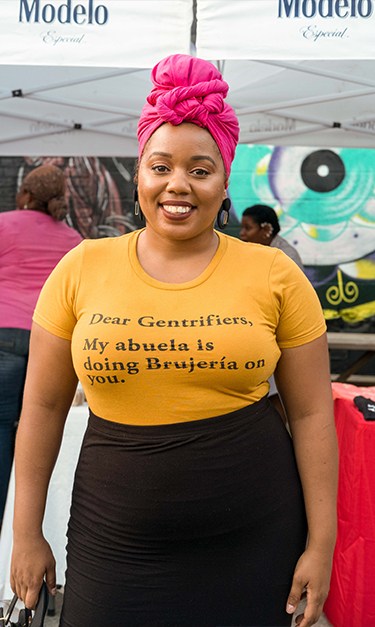This weekend, the Afro-Latino Festival completed its sixth annual festejón at a new venue, The Well, in Bushwick, Brooklyn. The festival, with its packed three-day agenda – including the Afrolatin Talks Conference, Liberación Film Festival, and an outdoor concert – aims to affirm Afro-Latinx identity and offer empowering educational opportunities outside of the confines of academia in safe and accessible ways.
We were able to speak to a group of festival attendees from all over the African diaspora about afrodescendance beyond identity. As conversations on Afro-Latinidad in the U.S. often center on affirming one’s identity, we asked attendees about pushing the movement towards future cultural, socio-economic, and political growth. Here’s what they had to say.
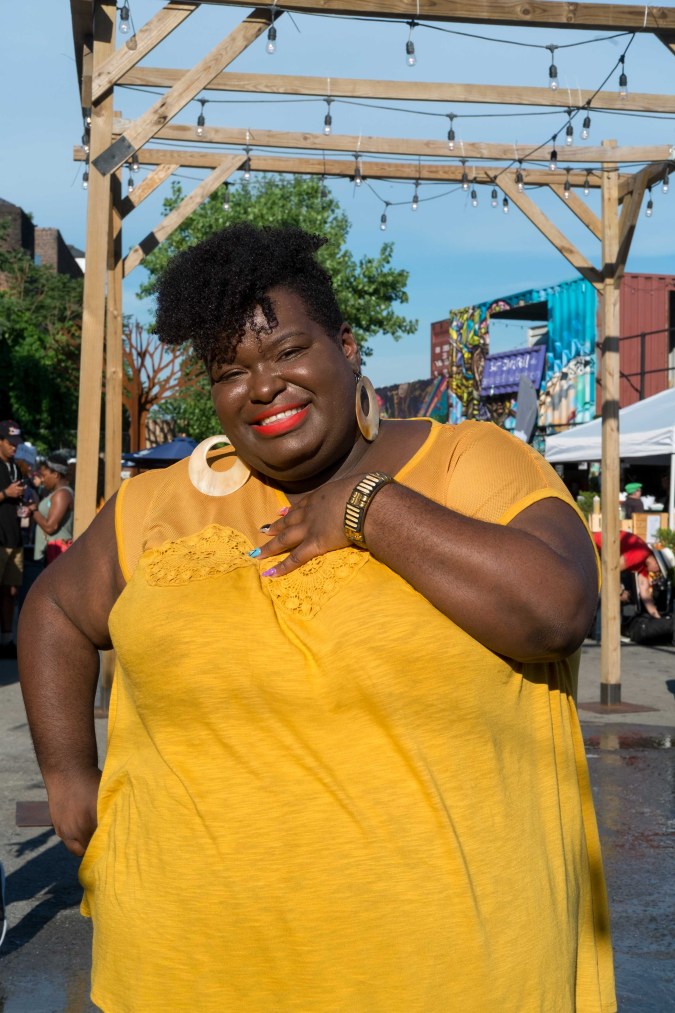
Angeley Crawford | Costa Rican
“Afro-Latinidad is complicated for me, but afrodescendiente is something that is the truth. People argue with me about Latinidad but what we can’t argue about is afrodescendencia. To say in Spanish que soy afrodescendiente is revolutionary; if I say it in English, or mekatelyu or patois, it’s revolutionary.
It’s been many years since I’ve been in Costa Rica – but what I will say is there was never any confusion about a Black person speaking Spanish. Obviously it’s a Spanish-speaking country, but negro o negra no era malo. It was rich; it was history…It is hope; it is love; it was never bad. In the United States, it is not good [laughs], to say the least.

As Afro-Latinos in the U.S., many of us have more than a triple consciousness and that is a fight, so there’s a sense of anxiety amongst us. For those of us who are undocumented, there is also a stressor of being Black in America, being Latino in America, and being undocumented in America. So those things, when they all work together, it creates PTSD…Survival is all that we know right now, and that brings a sense of weariness.
“Survival is all that we know right now, and that brings a sense of weariness.”
Immigration is something that is paramount to me. Any issue that negatively affects people of color in the United States affects afrodescendientes at a higher level. You name it and it’s causing anxiety. That’s the reality of it. My concentration is my people – what does it look like for us as afrodescendants, as panafricanists, to look across borders, states and countries and say our allegiance is to blackness? I don’t care who you are, if you Black and I’m Black, we gonna be Black together.
Everyone’s story is different and we have to make space for the waves of folks coming to shore and bring them into the political. We’re not moving away from identity, because everyone will come into their identity at a different time and it will mean something different to them. My story as a cisgender Afro-Latina is different than someone else’s and their waves may not come in at the same time as me. Identity is complex, and we need to hold space for it. And that’s okay.”
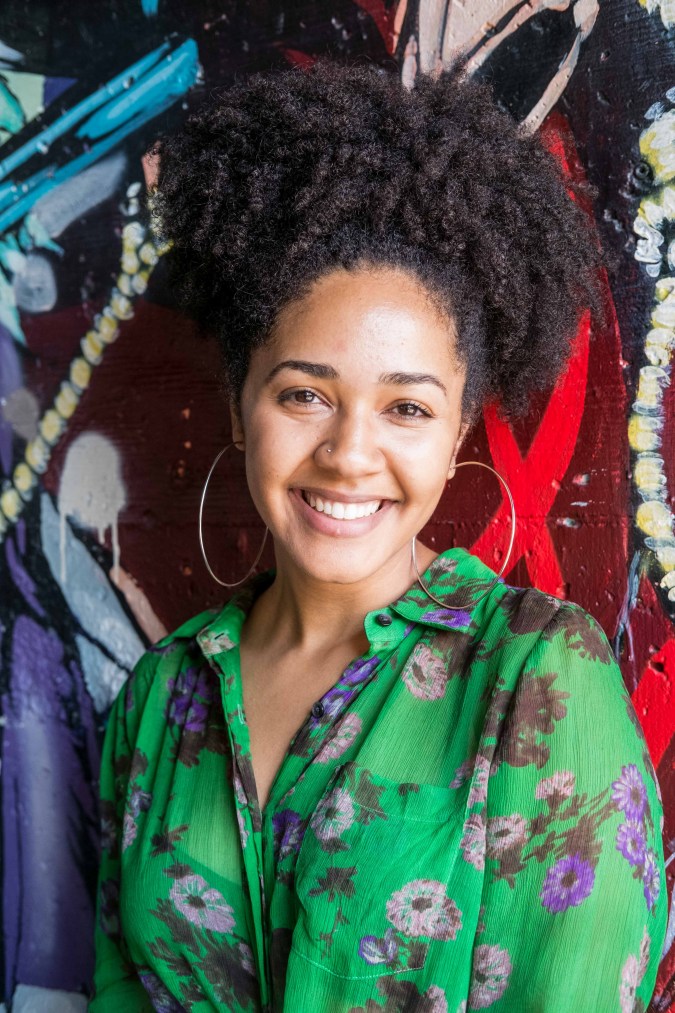
Cat Lantigua | 25 | Dominican
“Afro-Latinidad is the beautiful blend in which I live. It is the best aspects of everything. There’s no doubt that this combination of Latin and African wouldn’t have happened without terrible things in the past, given that we have an understanding of how traumatic it was.
“A world in which we are automatically included and we can be proud of who we are is key.”
People in the Dominican Republic, where my family is from, come in different shades and everybody sees themselves represented in media. But here, I don’t know. I feel like you have to look one way or the other to ‘make it’ and over there it’s not like that.
I think Afro-Latinos are trying to get their voices heard, finally. First generation Americans whose parents migrated to this country didn’t have as much flexibility to speak their mind because a lot was on the line for them. The standards have risen up and I feel like first generation Americans have more opportunities to speak up without fear.
Afro-Latinos should find themselves on the census in the country that they’re a part of. I think it’s ridiculous that there are so many countries that don’t account for us. Like, we’re non-existent. There are no ways to monitor how many of us are there, what our culture is like, how it’s transcended. It removes us from the independent ways that we exist and puts all of us into one pool as if we need to be watered down or something.
A world in which we are automatically included and we can be proud of who we are is key.”
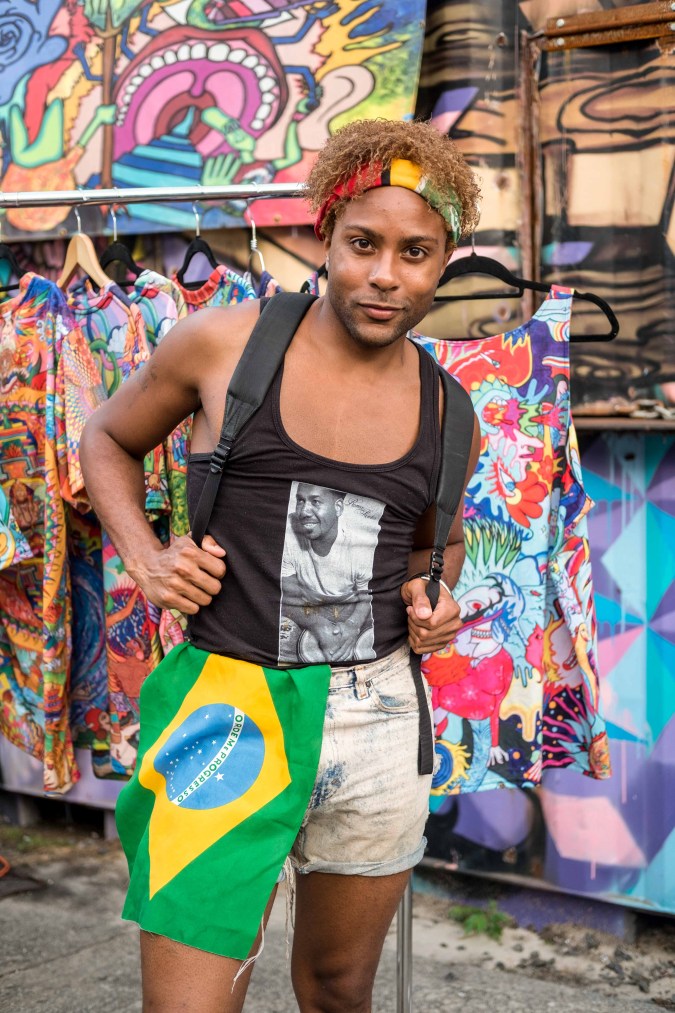
Chris Braz | 27 | Guyanese, Brazilian, and African-American
“I always knew I was Black and always checked off Latino, but when I was younger, I thought I was Black because my mother is African-American and I was an ‘other’ because my dad is considered an ‘other.’ When I ask family, unfortunately, I get responses like, ‘You’re mixed,’ and they don’t say that they’re Black. In other countries, blackness is a given. They might be more literal with color, like you’re moreno; you’re mulato, whatever. Here in the U.S., it’s defensive blackness. Like, ‘Yeah but what kind of black are you?’ People need to get more educated on Latinidad, ‘cause Latinidad is African too. For instance, people think Guyana is only East Indian. It also has Black and Portuguese people and Amerindian people.
“Don’t die for me, live for me.”
The attitude that Latinos don’t know that they’re black is changing, which was something that always annoyed me. There are a ton that are dedicated to blackness and understanding their roots. Latin America and the Caribbean is so Black. How can you say we don’t know we’re Black?
Overpolicing and resources allocated to our communities [are political and social issues that are important to me in the Afro-Latino movement]. In places like Brazil or Panama or Peru, people organize on how to get black political power and gain leverage. Representation in politics is important to me, because at the end of the day, war is strategic. People think that rioting is rising up, and that’s it. We don’t need more Marielle Francos; we don’t need more people dying in the streets. Don’t die for me, live for me. I want more of us to live and strategically unify our communities.”
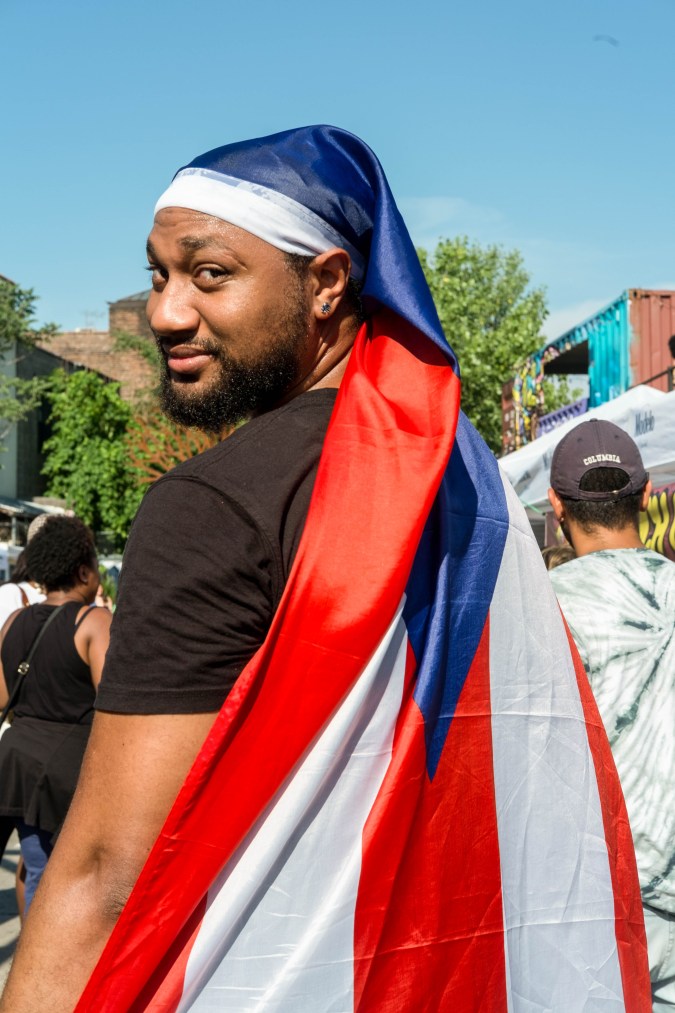
“DDomino” Geronimo | 27 | Puerto Rican
“I grew up in the 90s and never heard anyone else say they were Afro-Latino. Most of the Puerto Ricans in my neighborhood were white. It was difficult always trying to prove myself. It wasn’t until the 9th grade when I went to Latina Diaspora, an event at my school, and I started to embrace my identity more and not give a fuck about what people had to say about me being Blatino.
We still have a long way to go, but people are embracing who they are with no care. When I say I’m Blatino, when I wear my Puerto Rican flag, being part of the LGBT community, being a YouTuber – people have to accept that all of those things make up who I am.”
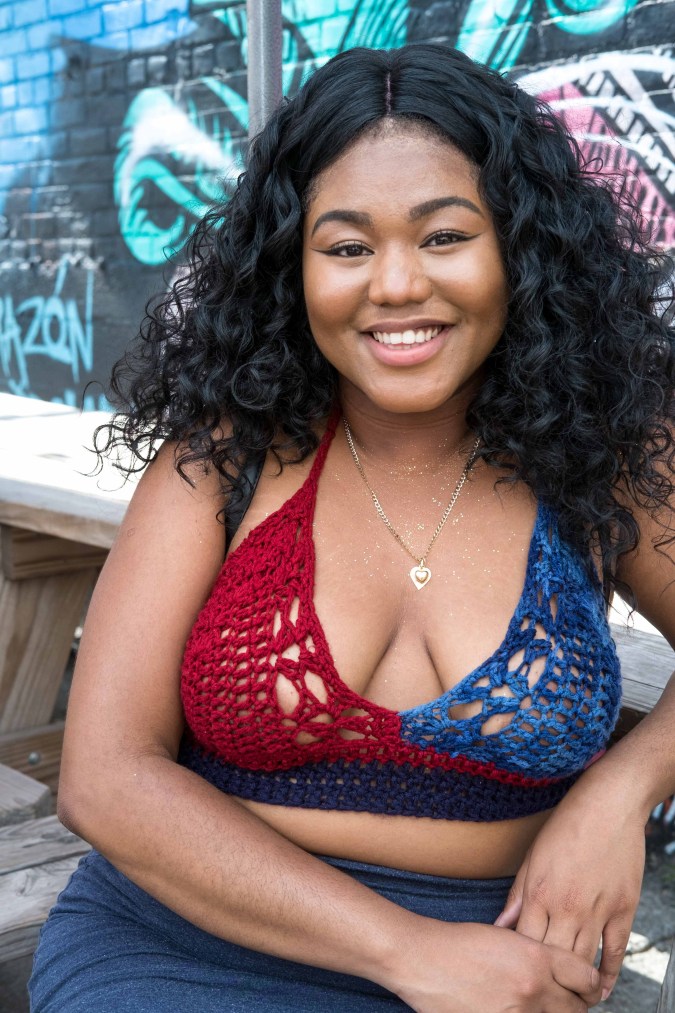
Francesca Tse | 22 | Haitian
“Growing up, I thought of myself as being Haitian, not African-American. When you meet people who are African-American, born in America, they have different experiences and different ideas on what it is to be Black. When you don’t meet their standards, have your own culture and language, it kind of confuses them.
“I think once we pass the identification point, we have to undo colonization mindsets.”
Marginalized groups are having a larger voice and it’s being met with adversity. We’re moving forward, but as expected, there are still obstacles. Still, I think we’ll be at a place soon where more people will be aware of each other and aware of our experiences, so there’s hope.
I was thinking about how we have this current administration where Trump is president and so many things that were done that put us in a better place – he sent us backwards. I hope we can undo what he’s been doing, and fight against him.
Someone came up to me here and asked me if I was more ‘Afro’ or more ‘Latino’ [laughs], so there’s that. I think once we pass the identification point, we have to undo colonization mindsets, like colorism. In Haiti, I’m seen as not that dark, and it’s considered to be nicer. That shouldn’t be a thing.”
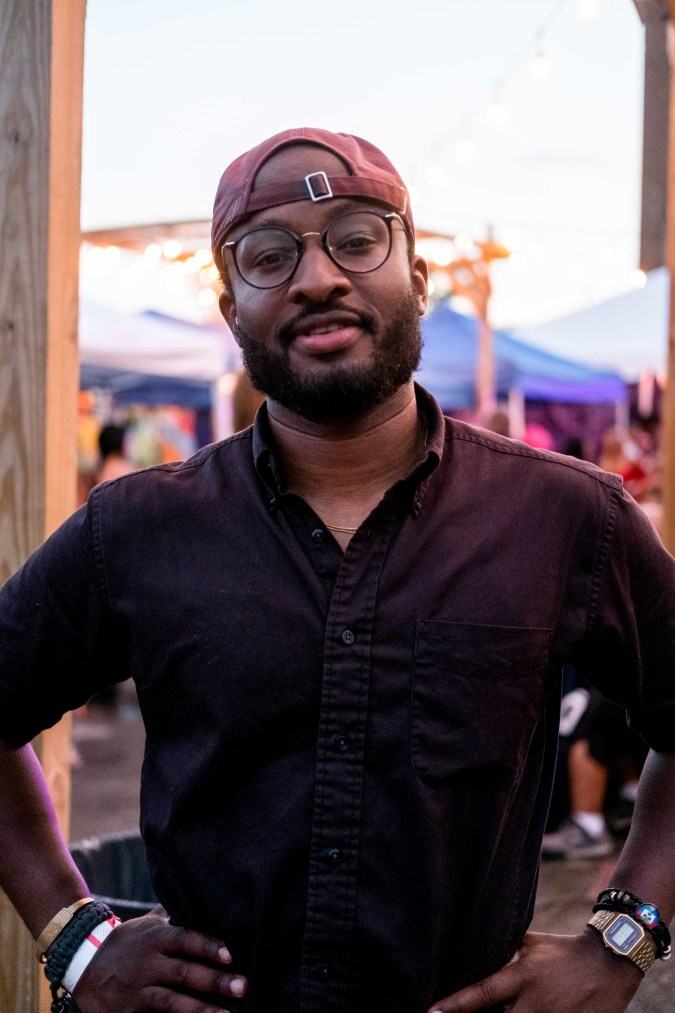
Redens “Rex” Desrosiers | 29 | Haitian
“I remember the first time I came to Afro-Latino Festival; it was the first time I was made aware that Dominicans like their blackness. Growing up in Haiti, I had always heard about conflicts between our two countries and them not acknowledging their Black ancestry. So that’s what Afro-Latinidad means to me – acceptance, growth, and unity.
“I feel like Black people are the only ones that truly know how to forgive.”
In Haiti, I was never made to feel my skin color. My family never sat me down and explained to me to be mindful of my complexion. It was when I came to the U.S. I was made aware of race, racism, and the hatred behind that. It’s really toxic here.
What I’ve noticed change is that white people have become more bold. At the same time, so have we, without the violence. I feel like Black people are the only ones that truly know how to forgive. For example, after the church shooting in Charleston, there were a lot of Black folks that came out and said that they forgive that white boy, and I was like, ‘Wow!’ We’re full of love and forgiveness, and that’s showing out more now.
I’d like to see more people accepting that we all come from the same place. Even though I’m from Haiti and you’re from the Dominican Republic, we’re gonna sit down and we’re gonna realize that our parents do the same shit, or our experiences are similar, our food is similar. We just all got here using different detours.”
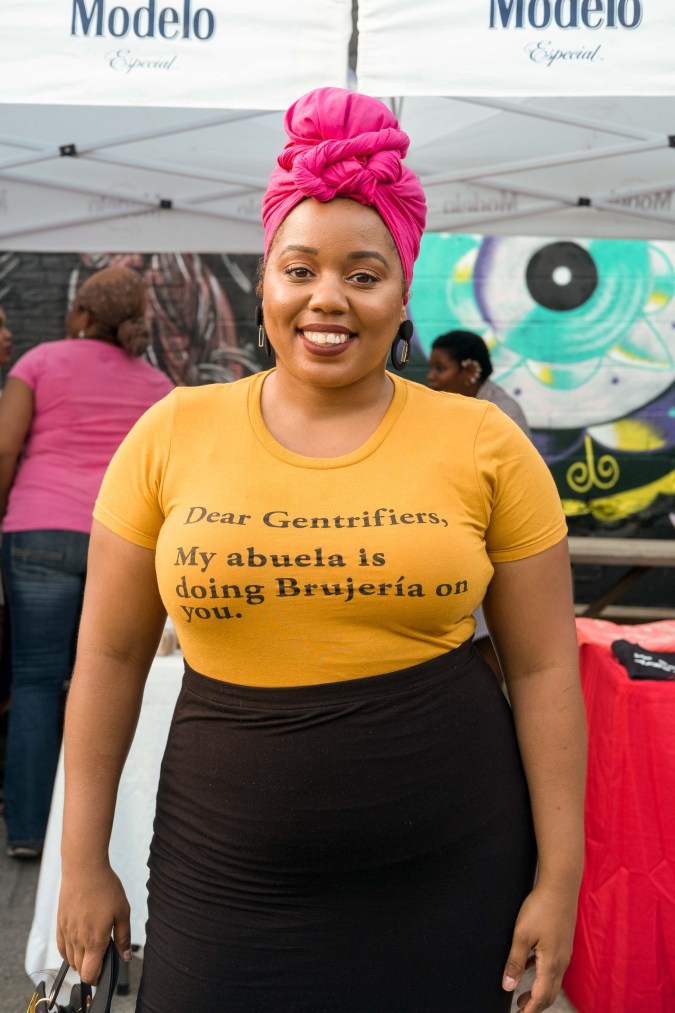
Sandra Martinez | Puerto Rican & Dominican
“I’m here because representation matters. Growing up watching novelas, you realize that there was only one depiction of what a Latina is, and we all come in different sizes and colors. Being Afro-Latina is not as celebrated as being Latina with society’s conventional looks. That’s why I’m here, to see all these beautiful Black and Brown people that represent the diaspora.
Afro-Latinidad means celebrating our ancestors, celebrating #BlackGirlMagic. I’m proud to say I’m Puerto Rican and Dominican, but I know where I come from. The only thing that is different between someone who is from the Bahamas or Jamaica is where the boat stopped.
“Blackness is worldwide and being Black shouldn’t ever hinder us.”
In the Dominican Republic, people come up to me and speak Spanish because they see me as one of them. They see me as someone from the diaspora. Here, it’s like, a Spanish-speaking person will come up to me and struggle to speak English because they don’t think I know Spanish. They don’t know me, but it’s just that concept. It’s always like, ‘I’m not Latina enough’ or ‘I’m not Black enough because I am Latina.’ I feel at home in Puerto Rico, too. But here, it’s always like, ‘What are you?’
Putting Black women and people of color in general first [is important to me in the Afro-Latino movement]. Fighting colorism, which is big in the Latin American community. We should be having discussions on why it’s stigmatizing to be Black. Equal pay for Latinos, Latinas, Black women, Black men. And of course fighting gentrification, all day every day!”
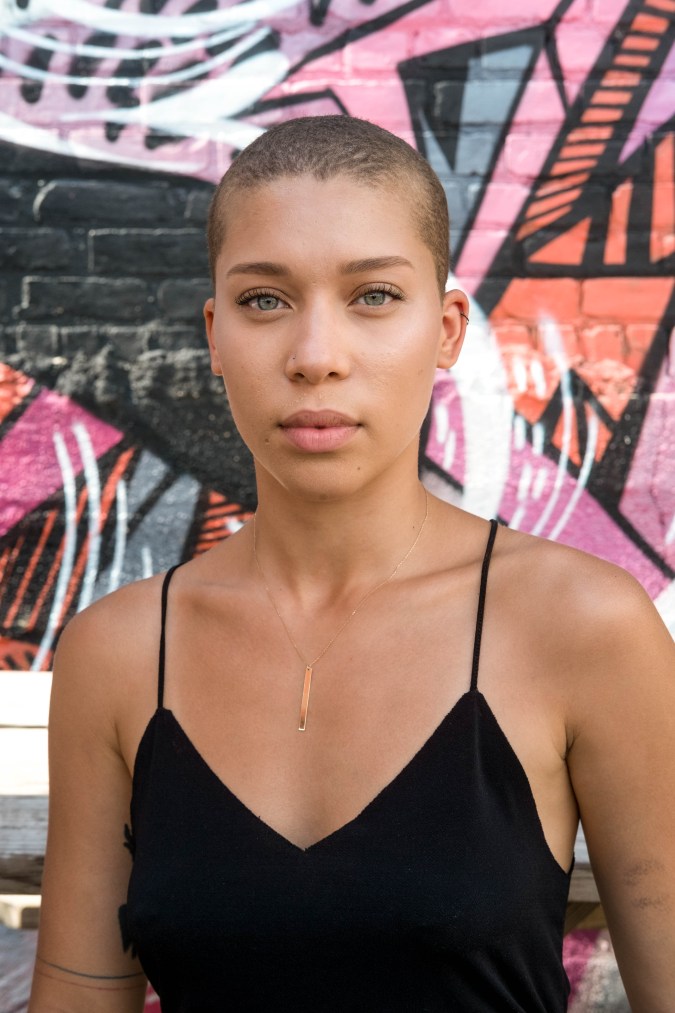
Simei Duplan | 21 | Haitian
“Afro-Latinidad means history, recognition, culture, reparations – the fact that we can claim our culture and our histories. Instead of victimization, it allows us to define our strengths.
I’m light-skinned, so in Haiti, I’m the minority. I know for a lot of Afro-Latinas, it’s the opposite. Despite being a minority, I feel like I’m accepted in Haiti, but navigating my way through American society is challenging.
There have been changes in the ways that we are represented in mainstream media. As more people have tried to be more inclusive to others, we can see that despite our differences, who we are is normal. Blackness is worldwide and being Black shouldn’t ever hinder us.
I think we need to have more festivals like this. People don’t understand what an Afro-Latino is or looks like. Without understanding who we are, there won’t be an effort made to respect us or normalize Afro-Latinidad. Like, people don’t think there are Black Mexicans! So the more representation we have, the more other people will respect and normalize it.”
